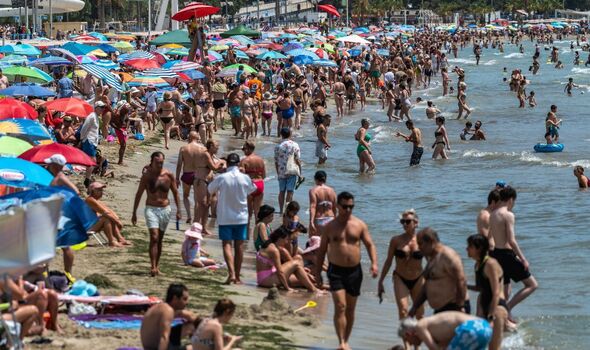Thousands of people in Spain have been taking part in public protests in response to rising overtourism concerns, and a boom in the housing market due to property rental sites.
Last week, on October 13, an estimated 150,000 took to the streets of Madrid calling for more substantial rent controls, social housing and a stop to real estate speculation, which they blame to be the leading cause for the rocketing house prices.
The surge makes it difficult for the ordinary Spanish resident to purchase their own home, with young people, low-income families and vulnerable groups being priced out of the market.
The Spanish government have now come up with two measures in an attempt to regulate “illegal tourism” and short-term rentals.
One of the measures which will come into force on January 2, 2025 will mean that homeowners who would like to rent out their properties for short periods of time will have to add them to a single register and receive a code before placing it on digital platforms such as Airbnb or Booking.com. Not doing so will be “illegal” and could result in huge consequences.
According to the royal decree, landlords will be obliged to have a registration number, provided that the information required for registration or renewal meets the requirements and then will need to inform the online platforms of the registration number assigned to them by the Land Registry.
The online platforms must ensure the legitmacy of their properties using the number in their applications, making sure they are also visible in the ads.
The Minister for Housing and the Urban Agenda, Isabel Rodríguez said: “The Land Registry will be able to certify that the property complies with local and state regulations, as well as that the residents’ association has approved that there can be tourist flats in the block.”
He also explained that the two objectives of the measure will achieve is to prosecute fraud and put a stop to illegal seasonal tourist accommodation in order to “mobilise the largest residential rental housing stock.”
It was proposed that seasonal rentals should be for less than six months, but the government decided that the length of rental time should depend on the case.
